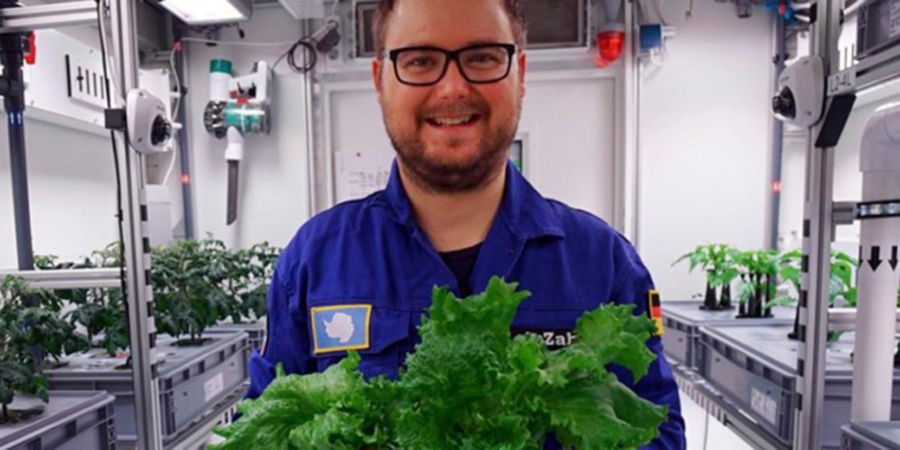Scientists based in Antarctica have harvested for the first time vegetables in conditions that do not include sunlight or soil. Considering the place is significantly inhospitable to the majority of plants, growing any food source represents a great achievement.
The experimental greenhouse EDEN-ISS at the Alfred Wegener Institute’s Neumayer – Station III, was the one who developed these vegetables, including 18 cucumbers, 70 radishes, and almost eight pounds of lettuce.
The food did not only serve for the wintering crew to nourish at the Neumayer Station. It also starts to fulfill the idea of another significant purpose, serving as a test run for growing food in harsh climates. While its use may seem limited on Earth, its applications on other planets represent a more significant opportunity and improvement.
Growing an ‘Antartic Salad’
The scientists planted the seeds of these vegetables back in February, and the successful harvest happened just two months later. The indoor farm differs itself from other types of farming since it does not require soil, which could even make it more viable for applying the project to other planets.

The vegetables grew using a closed water cycle and optimized light. According to one of the gardeners, the DLR engineer Paul Zabel, some issues had to be overcome – such as some minor system failures and the “strongest storm for more than a year.”
The greenhouse is just 1,300 feet away from the Neumayer Station III, and Mr. Zabel spends three to four hours a day inside the greenhouse so he can contribute to continuing the constant growth and research around the antarctic vegetables.
“It was special to have the first fresh salad of the Antarctic…It tasted as if we had harvested it fresh in the garden,” claimed Bernhard Gropp, the manager of the station.
Farming is not that easy in Space
According to the NASA website, in an excerpt written by Anna Heiney, a challenge that sticks with every mission when sending humans to distant places in outer space – such as the mission thought to send humans to Mars – is figuring out the food conflict. How to pack enough food for such a long journey?
While prepackaged food will, without a doubt, be provided, carrying space-saving seeds to grow their food could provide extra nutrition and even increase the morale of the astronauts out there.
The organization back in 2017 claimed to have an alternative to using soil, which is not contained in Mars’ surface, a “soil simulant.” However, that was the last time their page was updated, while Paul Zabel and its team already provided tangible results for the concern.
Further investigation and analysis will be made according to the team.
Source: Phys
